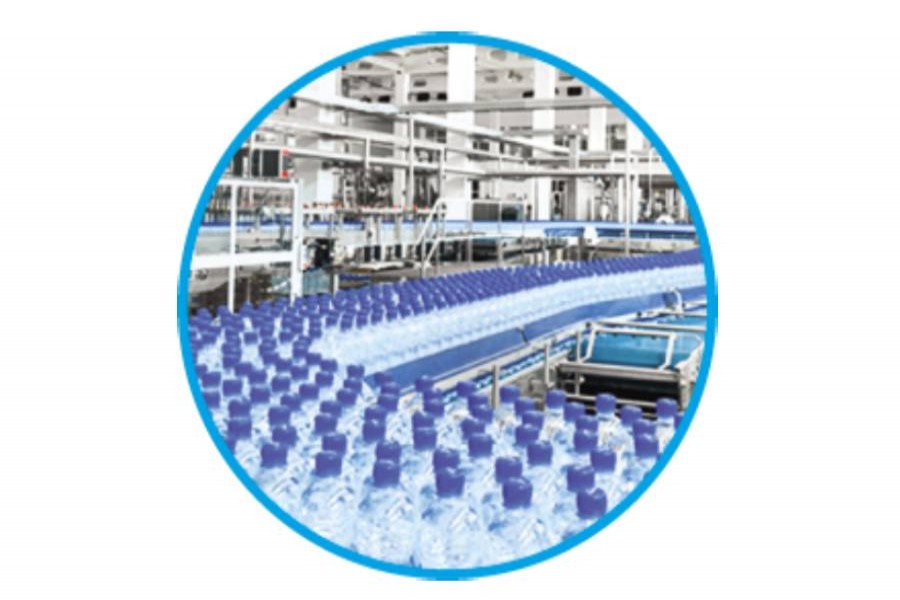
Published :
Updated :

Globally, plastic despite its inevitable presence in the daily life of millions of people is denigrated as a necessary evil. However, recognising its affordability, multipurpose use and recycling potential, there are efforts all over the world, especially the advanced world, to rid it of its harmful effects on the planet and make it truly useful and beneficial for human use. Needless to say, pollution caused by plastic waste is tormenting for the environment including for aquatic resources necessitating urgent action. So, the need for better management of the sector is increasingly felt at home and abroad.
The country's export of plastic goods is growing. However, the figures are not big enough to inspire great optimism. The fact remains that in Bangladesh, plastic plants have only recently opted for modern technology in producing various food and nonfood-grade products. With more technology back-up, and accompanying diversification, the industry -- though scattered and even disorganised -- has the potential to grow in a healthy manner if provided with the right facilities. This may open up a new vista for exporting.
It may be noted that exporting was far from the targeted goal of the industry even a decade back, though there were few enterprises which were exporting in small volumes. Mainly it is the local demand that motivated factories -- medium, small and very small -- to produce plastic products. Annual sales of plastic products in the local market are currently estimated at around Tk 150 billion, in which household items account for nearly Tk 20 billion. Increase in domestic supplies reportedly grew at 15 per cent a year over the last several years. The country's plastic sector is said to employ around 1.2 million people directly and indirectly in well over 4500 small, medium and large manufacturing units. Value addition in manufacturing is also commendably high, ranging between 50 and 70 per cent. At present, around 5000 factories are producing plastic products in more than a dozen categories.
Use of plastic products in the country has grown manifold thanks to the dynamic improvements in recycling technology-- a key stimulus in increased production on the one hand and growing consumer preference on the other. However, lack of upgrading the quality and diversification in product range is commonly attributed as the main impediment to the sector's growth to a far higher level. This holds true in respect of domestic consumption but more so, when it comes to exporting.
According to industry insiders, these potentials and prospects of growth can only be expected to be realised once the industry is shifted to a suitable location -- a plastic hub, preferably in the outskirts of the capital. This newspaper, not long ago, had pointed out the need for a plastic hub in the country in order that attempts for improvement of the sector could be taken up in a planned manner besides providing opportunities for the factories to operate hazard-free and attract overseas investment. Industry leaders have also been demanding for a dedicated location which besides providing hazard-free production process will also help meet various compliance needs of overseas buyers. Concerned quarters feel that a plastic hub with modern recycling plant, waste management facility, properly trained workers and necessary infrastructure will be able to manufacture products at competitive prices for exports, even after a reasonable raise in the present wage structure.
Recently at meeting among the stakeholders, the industry people have come up with a proposal for allowing RMG-type bonded warehouse facility to the exporters of plastic products. This, no doubt, is a new thinking, and in order to have such a system in place, there has to be threadbare discussion with the NBR to examine the pros and cons associated with the issue. It is expected that the industry leaders will take it up and also suggest a comprehensive modus operandi for such bond system in a sustainable manner.
That the plastic industry needs a well directed Policy has been a demand for long. Lately, there is reportedly some forward movement in this regard. The Ministry of Industries has prepared the draft National Plastic and Packaging Industry Development Policy with short and long-term action plans for the development of the growing sector.
One of the goals of the policy, reportedly, is to ensure a sustained 25 per cent growth of the sector by 2030. Besides, the policy aims at generating 0.5 million employment opportunities and boost contribution of plastic sector to the gross domestic product by at least two per cent by 2026. Broad goals of the policy are to increase investment in the sector, create quality infrastructure and ensure value addition and increase exports. The policy also recommends establishment of a plastic industrial park to ensure proper infrastructure, nurture small and medium enterprises, provide uninterrupted utility services, take steps to avoid environmental hazards and ensure compliance. Environmental Management System (EMS) has to be introduced in all plastic industrial units as a strategy and manage the environmental impact of the production facility, according to the draft.
Revamping the sector calls for concerted effort of all concerned. Since there are a number of critical issues involved, addressing all of those would require a whole package of activities, including fresh initiatives and innovative thinking.
wasiahmed.bd@gmail.com


 For all latest news, follow The Financial Express Google News channel.
For all latest news, follow The Financial Express Google News channel.